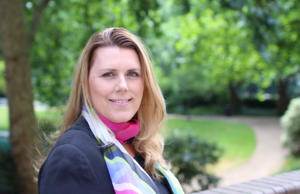Rachel Spearing

Tell us about your background and why you decided to become a barrister.
I came to the Bar as a mature student. My A level law teacher suggested I might be interested in this vocation. She thought I'd be interested in the job because it played to my strengths, communicating, being analytical and debating! I always had an interest in 'why' and 'so what if' aspects of 'real life' situations, but it would be many years from that conversation at 17 until I made my decision to pursue a career. I was 24, and technically a mature student until my journey started.
Did you face any obstacles along your journey to becoming a barrister and how did you overcome them? Have any of them persisted since becoming a barrister?
Being a mature student, from a non-traditional background and with financial limitations the reality is that there were, and are obstacles. These are both practical, for example in accessing opportunities, arranging work experience and preparing applications and interviews; to having the confidence and self-belief when feeling 'different' and worrying that you don't fit the barrister stereotype. During my journey and more so now there is information out there to support equality, diversity and access to the profession. I won a mooting competition at Liverpool Uni offering a mini pupillage at a set of Chambers, and then used that as a springboard to write to others for different experiences to see practice. I worked during my holidays as a temp in a law firm which provided not only some cash during my student years but valuable experience of seeing how solicitors operated, and eventually in my final year paralegal work for a senior partner putting trial bundles together for complex cases learning essential trial prep.
I embraced being slightly different, with a regional Liverpool accent and made it something of a distinguishing trade mark. It is important to have a sense of personal and professional identity, and in my case it gave me authenticity and some of my clients confidence, in being comfortable with my background. It did not make me less professional.
What opportunities, support and encouragement did you receive along your journey to becoming a barrister?
My family always encouraged me, as the first and only person to access higher education there was encouragement, and my state school background was not as limiting as it felt, as the Inns gave me opportunity and my mentors assisted some practicalities with work experience, applications and reflective reviews on interviews and practice. The Bar Council, Inns of Court and many individual sets of Chambers have initiatives that can create 'life lines' to those who come from backgrounds just like mine.
What is the most rewarding thing about being a barrister; has life at the Bar met your expectations?
Life at the Bar has met my expectations but it hasn't always been a bed of roses. No two days are the same. I enjoy the independence and challenges of the law. It is a privilege to work within the law and the stimulation of finding solutions to problems and seeing them through (sometimes successfully and unsuccessfully) means that it is never dull, or mundane.
How do you use your experience of coming to the Bar from a non-traditional background, to support those seeking to do the same, and/or why is it important for barristers to contribute in this way?
Challenges at the beginning provide greater resilience for the setbacks and proper preparation for the process. It is vital to see the reality of the variety of practitioners and their backgrounds, to appreciate the diversity that is already at the Bar. My own journey has enabled me to be a supportive role model to others, and give support for those entering and in the early years of their profession.
What are the challenges facing today's aspiring barristers, and how could they be addressed?
Financial - work and take time to build up experience with as little debt as possible to stay the distance.
What advice would you give someone from a non-traditional background, seeking to succeed at the Bar?
Use all the resources available to access the profession, invest in alternative experience to gain 'real world' life experience and never try to fit a stereotype.